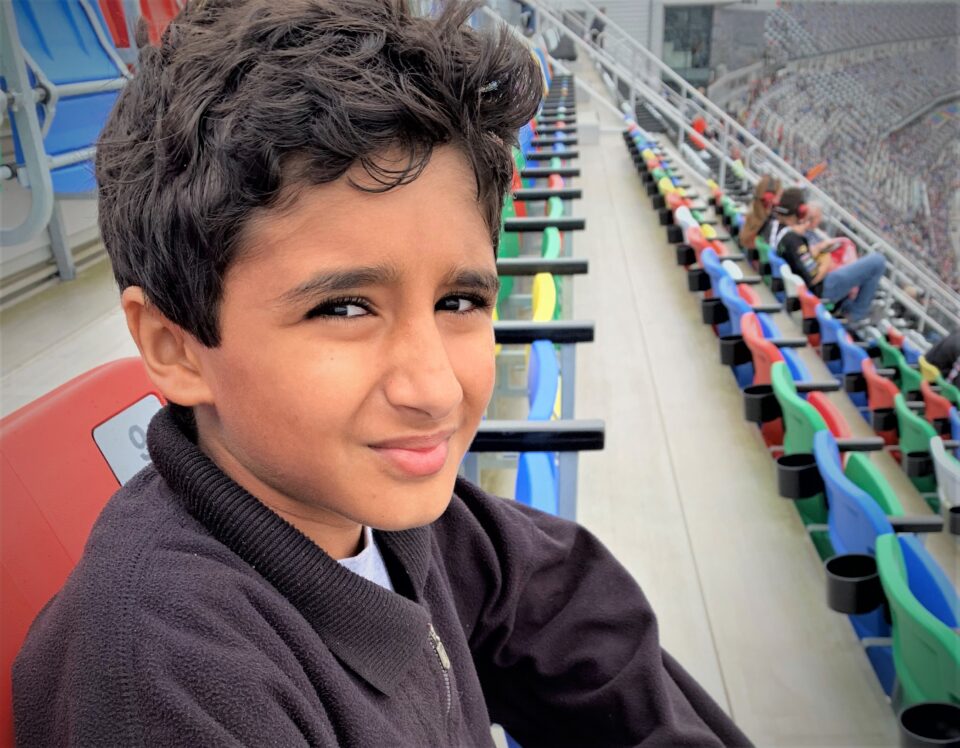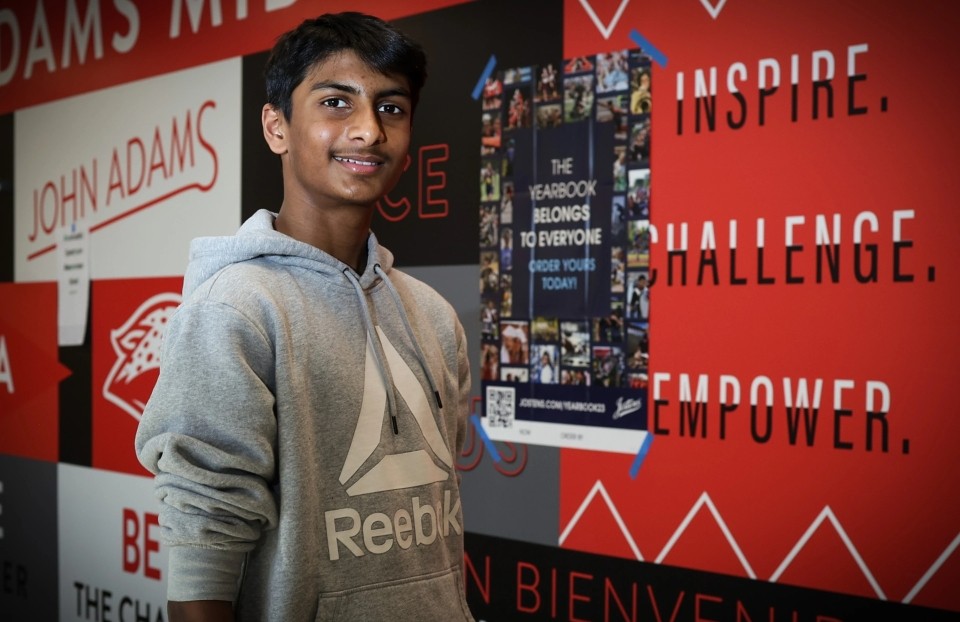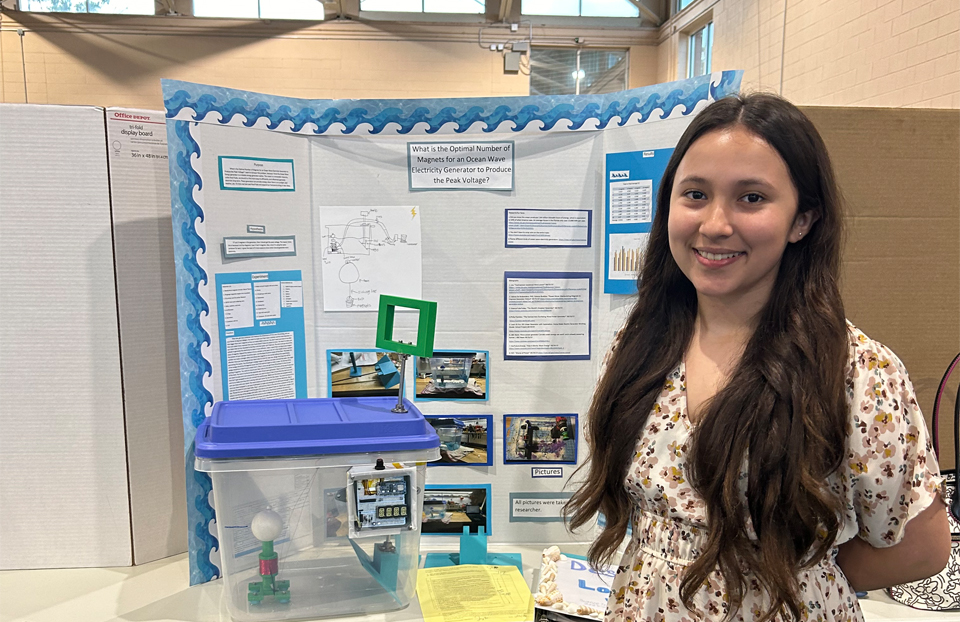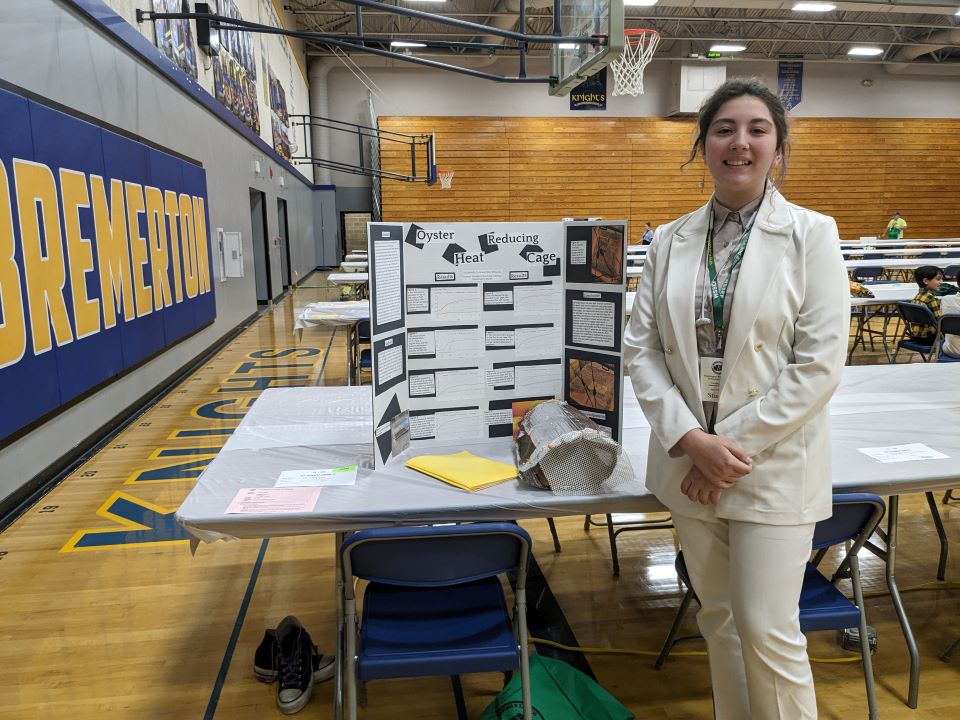Lemelson Foundation, Young & Amazing
Middle schooler invents a smart bracelet that tracks if you washed your hands

Last year, The Lemelson Foundation gave $100 awards to outstanding young inventors in Society Affiliate Fairs with middle school participants around the country. This is the second year of a three-year grant where young innovators will be recognized. The prize was especially created to reward young inventors whose projects exemplify the ideals of inventive thinking by identifying challenges in their communities and creating solutions that will improve lives.
Did you wash your hands? Yes or no? I hope you did because a middle school student from Martin County, Florida, Varun Singh, has devised a smart wristband that can track who washed their hands and who didn’t. His project, titled Busted! Monitoring Hand Hygiene with Smart RFID Technology, earned him the Lemelson Early Inventor Prize at the Martin County STEM Fair. All jokes aside, this kind of technology has potential to help limit the spread of hospital acquired infections, including COVID-19.
Over the past nine months, we’ve all become more aware of hand hygiene ─ with many of us going as far as carrying hand sanitizers in our pockets and washing our hands religiously, countless times a day. With an airborne virus in our midst, thorough hand washing and mask wearing are not only of the utmost importance in healthcare settings, but also in schools, universities, restaurants, supermarkets and really in any and all other public places to reduce the spread of this virus.
Varun began work on his project well before the national emergency was declared, but it certainly holds special significance now. His interest in the topic gained momentum when his mother shared new research she heard at a medical conference. Researchers had reported that nurses weren’t washing their hands as required, and were contributing to the spread of infection and disease in hospitals and other healthcare settings. Varun tells the Society, “I thought about that for a few minutes, and thought, what if we could find out who wasn’t washing their hands. Especially with pandemics like COVID-19, having a system that would be able to track hand washing would be a major help.”
His solution? A smart wristband that can capture hand washing habits and track violations using RFID readers and tags, USB cables, Python software and a waterproof bracelet. He explains that first he made the tags wearable by gluing them to bracelets. “I then connected the readers to the laptop using USB cables. This way, I could program the reader to send the laptop every reading it takes using Python software.”
In order to test his design, Varun set up RFID readers at flush handles and soap dispensers. The readers were then connected to his laptop. “After running both Python scripts, I began trials. First, I walked into the restroom and flushed the toilet. The RFID reader read the tag. I then used the soap dispenser and washed my hands. The RFID reader read the tag there as well,” Varun explains. “I repeated this process multiple times, but not necessarily in the same order. The results were then logged.”
To begin his research and invention process, Varun consulted the Center for Disease Control (CDC) website. “They provided me with accurate stats, the current situation with various diseases and the current methods that are available to stop them.” The CDC website recommends singing Happy Birthday twice before thinking you are set. While hospitals and restaurants post signs asking employees to wash their hands, you can’t be sure who is following that protocol. Varun explains that his ultimate “engineering goal was to design a system that can effectively record this data. My design is an effective, low-cost method to successfully record correct and incorrect hand washing. Using a wristband with an RFID tag allows for electronic capturing of data of employee hand washing and allows for more accountability. RFID is a low-cost and an easy solution to implement in businesses.”
Varun tells the Society that he enjoyed many parts of the invention process, but it was not without challenges. “I liked writing the code for my project. However, creating the Python scripts was extremely challenging and caused many problems in the design.” In fact, before pursuing this project Varun hadn’t ever worked on such a complicated Python script but he pushed himself to learn. “I had trouble connecting the RFID reader to the computer using the Python scripts. If I was to conduct an engineering project in the future, I would get to better know the properties of my materials before I begin.”
The Lemelson Foundation, the sponsor of the Lemelson Early Inventor Prize, accentuates the importance of invention as the potential to solve the world’s most intractable problems through innovation and creative thinking. And this award, in particular, for middle school students is an incentive for young people, like Varun, to challenge themselves to think critically about inventions that could help improve the world. We look forward to seeing Varun patent his invention for future use.


